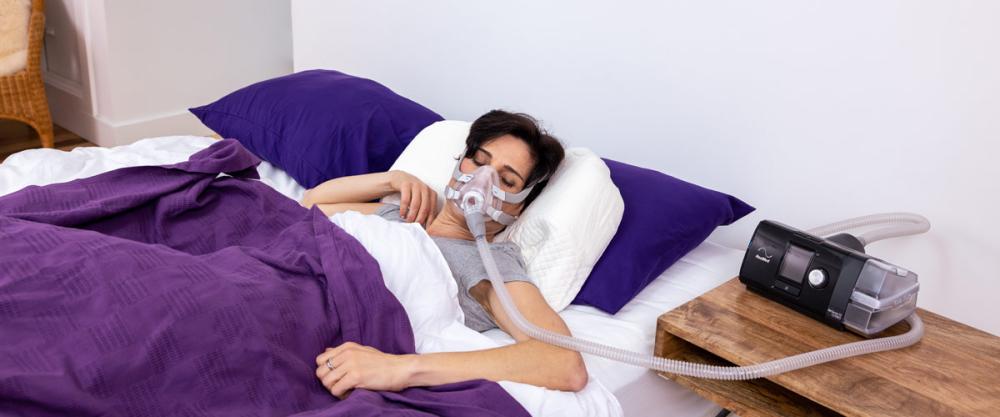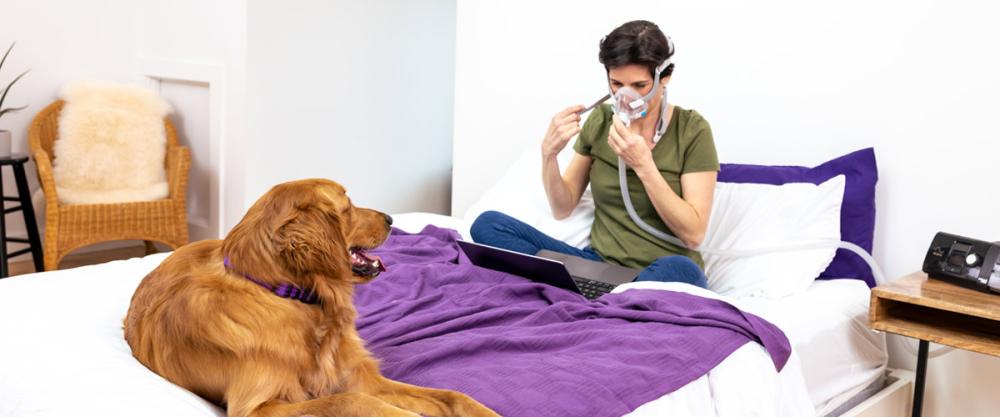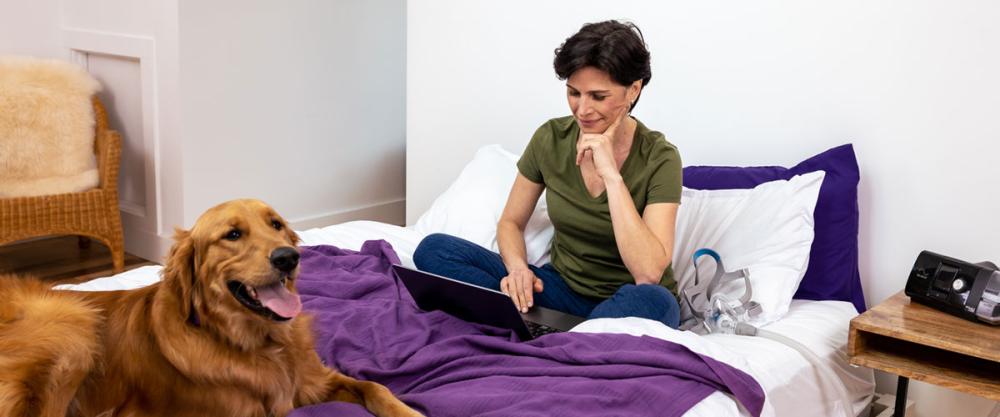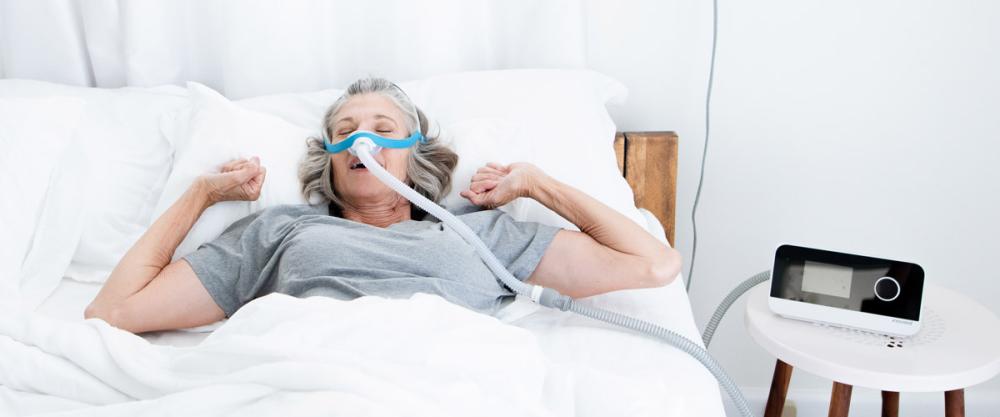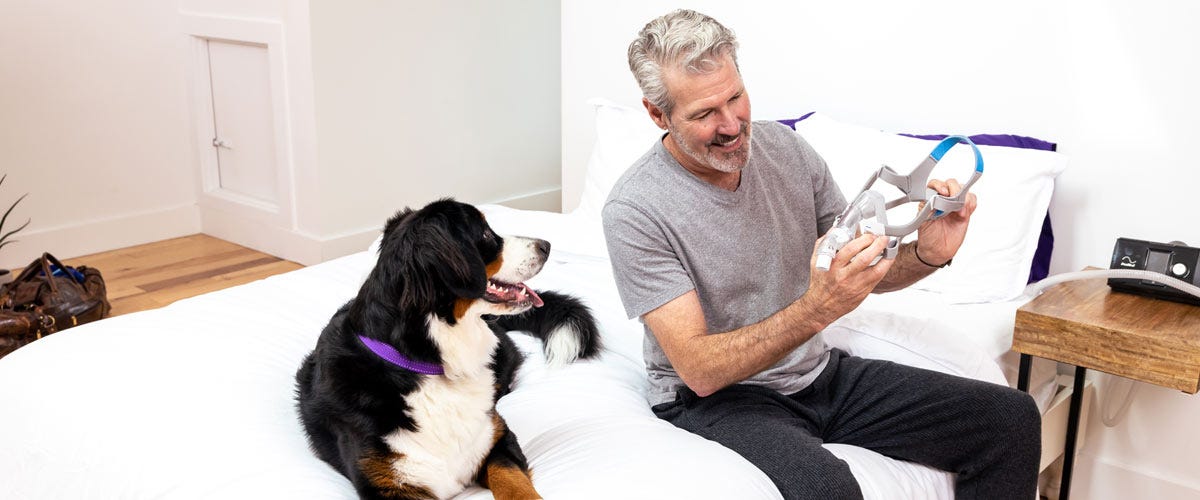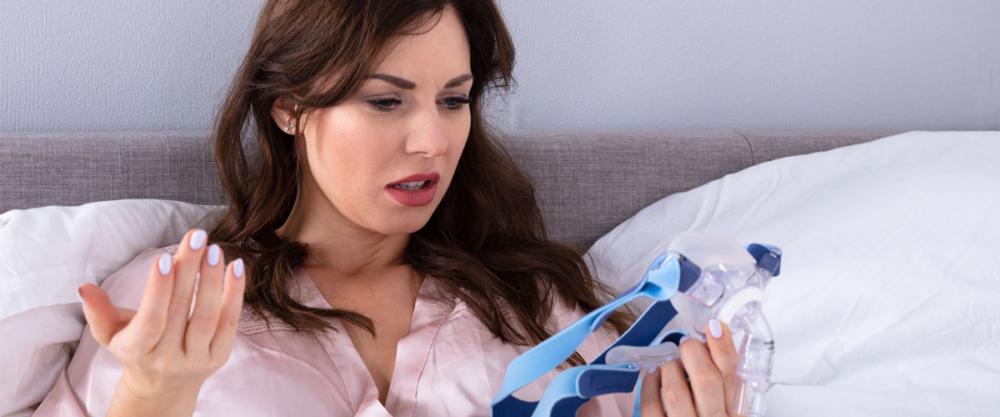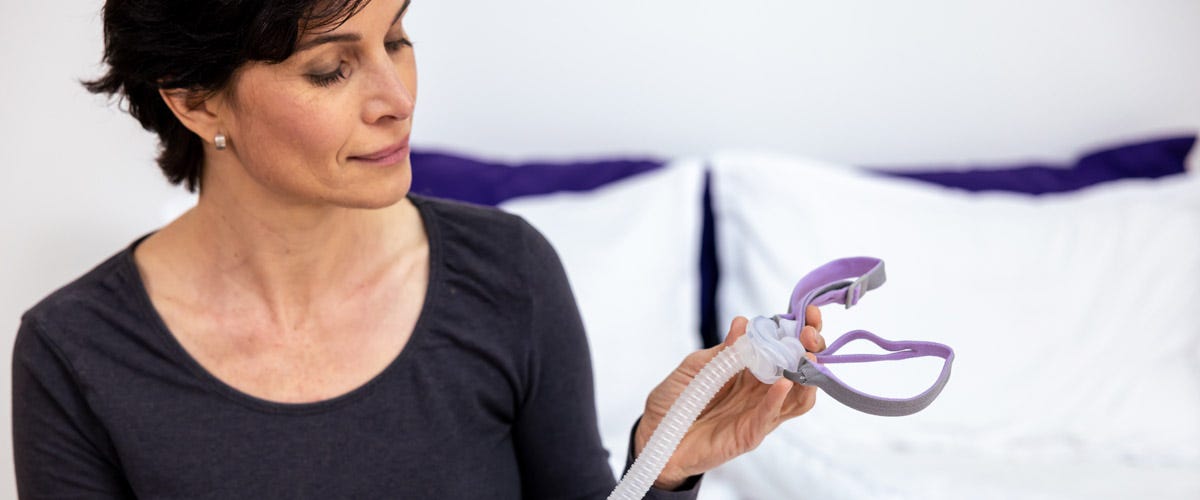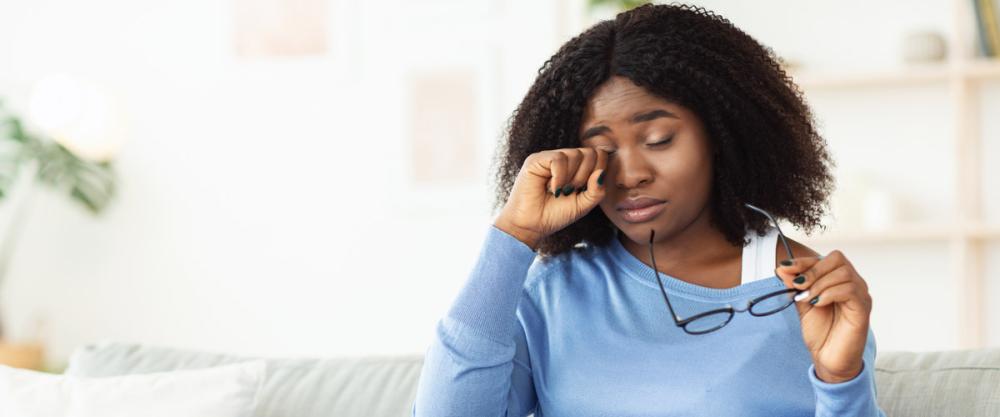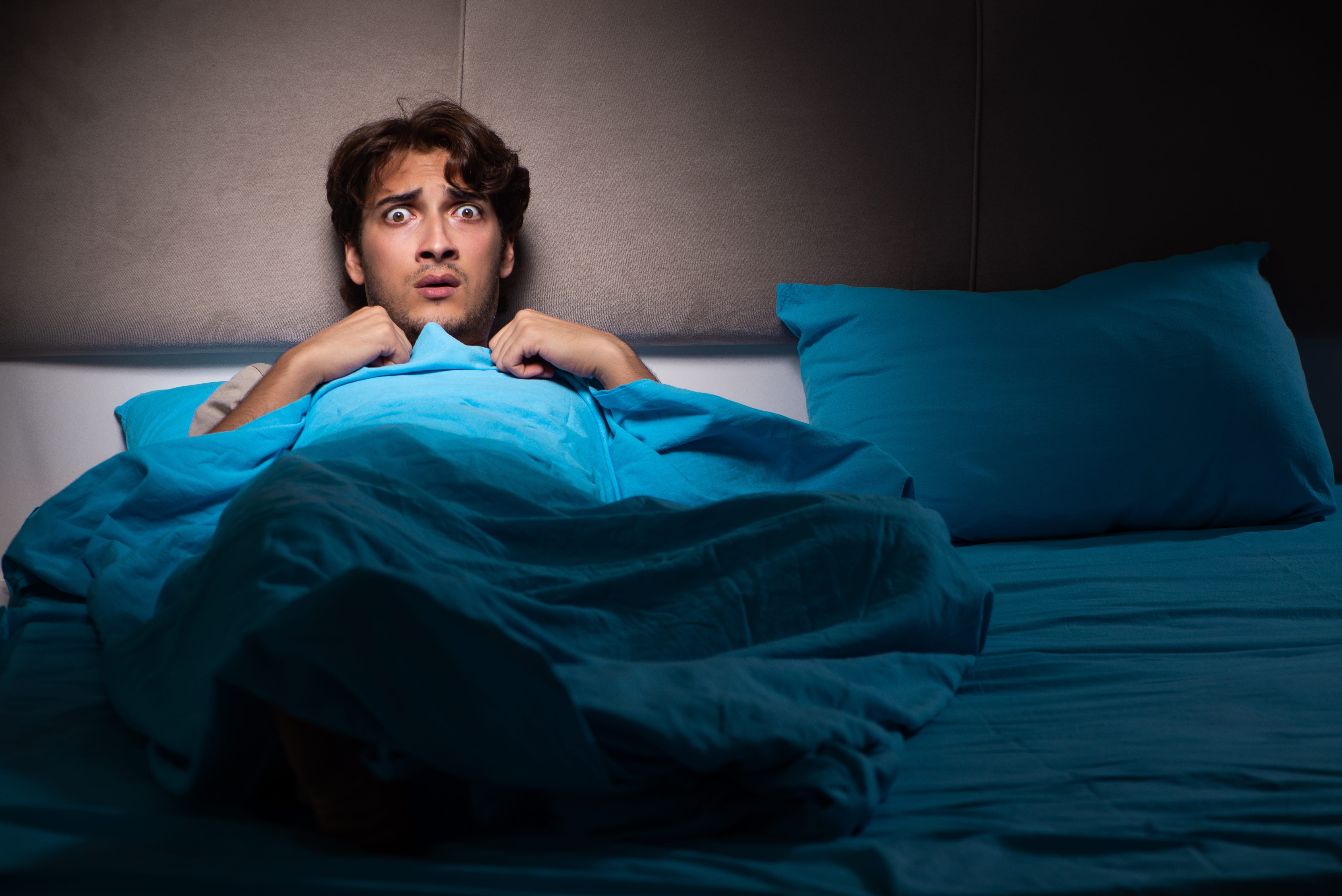Your CPAP mask is the primary interface between you and your CPAP device, and it might just be the biggest factor in determining how well you are able to adjust to your sleep apnea treatment. It works hard night after night and over time its performance can be weakened by normal wear and tear. Learn exactly how and when to replace your CPAP mask to get the most out of your CPAP therapy.
Read more
Posted in CPAP Education, Using a CPAP, Troubleshooting Your CPAP, CPAP Cleaning and CPAP Compliance
For most people, undergoing a sleep study and getting diagnosed with obstructive sleep apnea (OSA) is a pretty big deal. As with most chronic conditions, the treatment will involve some major lifestyle changes. Losing weight, stopping smoking, reducing alcohol intake, and other measures can certainly help reduce the severity of OSA. But if you’re doctor has recommended you get treated with CPAP therapy, the biggest change you’ll need to get used to is using the equipment consistently. But don’t worry! If you’re a little (or a lot) nervous, you’re not alone. We’ve pulled together some insights on how to cope.
Read more
Posted in Using a CPAP, Troubleshooting Your CPAP, Sleep Disorders, CPAP Benefits and CPAP Side Effects
There are three main types of CPAP masks - full face masks, nasal masks, and nasal pillow masks. Each of the three mask options has the same basic components: mask frame, headgear, and cushion. Since the CPAP mask is the interface between you and your CPAP machine, it needs to provide a comfortable fit. Otherwise you’ll be less likely to keep it on all night and your obstructive sleep apnea (OSA) treatment will be less effective. Don’t worry, the best CPAP mask for you is out there, read on to find out how to find it.
Read more
Posted in Product Info - Masks, Product Review/Comparison, Using a CPAP and Living with Sleep Apnea
Wondering if you can use your FSA or HSA for CPAP supplies? The answer is yes! If you have funds that run out at the end of the year, this is the perfect time to upgrade your existing equipment. Start the new year off right with fresh, sparkling clean CPAP mask, tubing, humidifier chamber, parts, or a machine.
Read more
Posted in CPAP Education and Using a CPAP
The content in this blog was medically reviewed by Michelle Worley, R.N., a seasoned medical advisor who has worked as a clinician for over 20 years in the sleep-related medical field. New to CPAP therapy? Not only is it the most effective sleep apnea treatment, but it provides your body and mind with the oxygen necessary for optimal health.
Read more
Posted in CPAP Education, Using a CPAP, Sleep Health and Sleep Apnea
If you have a beard and have started using a CPAP machine to treat your apnea, you’re probably aware that facial hair can make fitting the right type of CPAP mask a bit of a nightmare. But don’t break out the beard trimmers just yet, because it is still possible to find a CPAP mask fit for beards!
Read more
Posted in CPAP Education, Using a CPAP, Troubleshooting Your CPAP and CPAP Cleaning
The content in this blog was medically reviewed by Michelle Worley, R.N., a seasoned medical advisor who has worked as a clinician for over 20 years in the sleep-related medical field.
Are you still snoring with CPAP? Isn't a CPAP supposed to solve your snoring? Your CPAP machine is supposed to greatly reduce snoring and other breathing problems related to sleep apnea, snoring could indicate that something is wrong. Let’s take an in-depth look at snoring to determine causes and solutions.
Read more
Posted in CPAP Education, Using a CPAP, Troubleshooting Your CPAP, CPAP Cleaning and CPAP Compliance
Most people need quiet in order to get a good night’s rest. If you are undergoing nightly CPAP therapy, then that may be a challenge for you to get used to in the very beginning. The good thing about modern
CPAP machines is that they should not generate any more noise than what a conventional fan creates. If you are waking up to loud noises coming from your
mask or hose, it might be time to take a closer look at your CPAP setup to troubleshoot that pesky whistling sound.
Read more
Posted in CPAP Education, Using a CPAP, Troubleshooting Your CPAP, CPAP Cleaning and CPAP Compliance
The content in this blog was medically reviewed by Michelle Worley, R.N., a seasoned medical advisor who has worked as a clinician for over 20 years in the sleep-related medical field.
One of the most common
CPAP machine side effects is dry, itchy eyes. However, if you find yourself unable to fall asleep or waking up with irritated eyes, don’t worry. We’ve discovered the causes and solutions for CPAP dry eyes to provide relief faster than you can blink.
Read more
Posted in CPAP Education, Using a CPAP, CPAP Cleaning, CPAP Compliance, Sleep Health and Sleep Apnea
Do your dreams make you scream? That might be due to untreated sleep apnea. While other parasomnias can cause nightmares, when it comes to sleep apnea, it's the lack of oxygen that contributes to bad dreams.
Read more
Posted in CPAP Education, Using a CPAP and CPAP Cleaning

